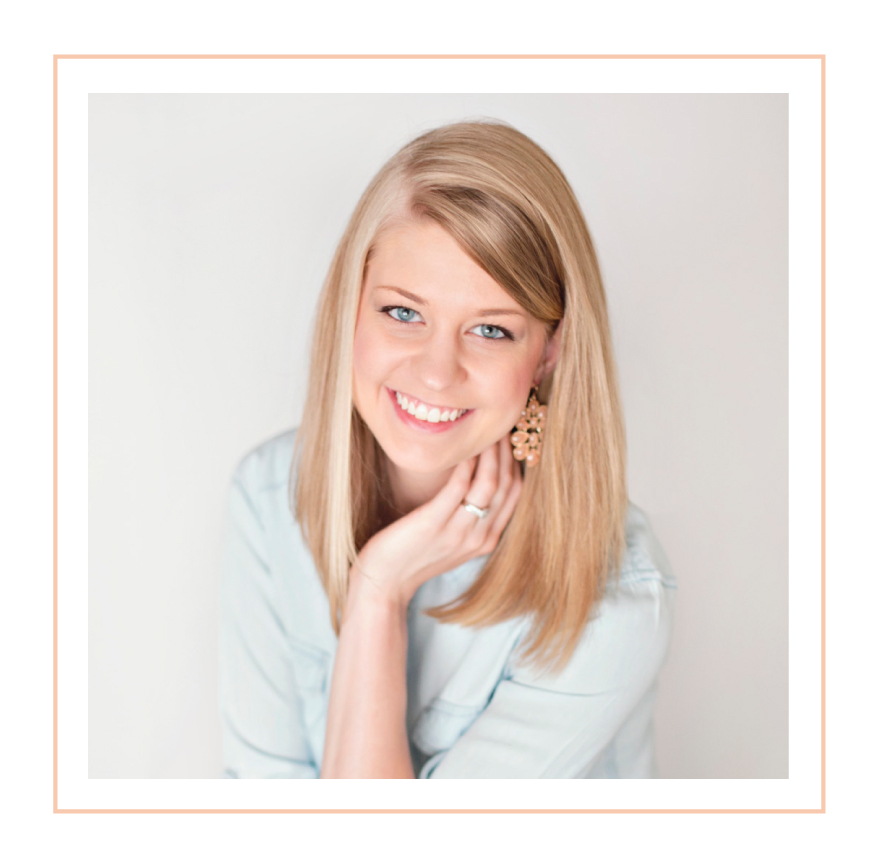.jpg)
and photographing my first wedding!
![]()
Before I get into these 8 tips for photographing your first wedding, I feel like I need to share with you what my first wedding day experience was!
I remember my first wedding like it was yesterday. I graduated with my photography degree in May of 2012, but still hadn’t photographed my first wedding. And I wasn’t even sure I ever wanted to. I took a Wedding & Event class in school, and we photographed a “mock” wedding for our final grade, but that was stressful enough! I didn’t know if I wanted to put myself through that kind of stress on someone’s REAL wedding day! You only have one chance to get it right and I didn’t want that kind of pressure. And at that point, I really didn’t know that second shooting with another photographer to gain experience was even a thing.
However, I ended up saying YES to my first wedding inquiry about 4 months after I graduated college. Everything in me wanted to say NO, but I felt like I would regret it if I just kept playing it safe and only photographing what was comfortable and easier for me. It was a family friend in our church’s nephew that was getting married, so I figured this would be a good first wedding to photograph. It was going to be a very small event with just family and a few friends. I charged $500 and tried to remember everything little thing I was taught in school, as well as look up as many online resources as I could to prepare myself. And even though I had just graduated photo school, I still didn’t feel prepared enough for this and I felt that I wasn’t good enough. In my opinion, you can have all the photo training in the world, but until you actually step-out and do it in the real world with actual people, you’re never going to be 100% prepared. But I wanted to stay in my comfort zone, which is something that I still struggle with to this day.
I showed up and did my very best with what I already knew, and even though I was extremely nervous I tried not to let it show. It was an off and on rainy day wedding too, so I had to go inside and outside with the couple and the family a few times once the rained stopped, until I captured all of the portraits. To be completely honest, it was extremely stressful, but I walked away from that wedding with two different mindsets:
- I never want to do this again because it was so stressful and I feel like I didn’t have a clue what I was doing. And I wondered if everyone else felt the same way about me.
- That was actually kind of fun and I felt a kind of rush from it even through the stress and freaking out moments. I might want to do this again!
Needless to say, I’ve photographed a lot more weddings since then, my style has changed and I’ve truly grown to LOVE it! Everyone has to experience their first wedding, or even their first portrait session as a photographer. The more you do it, the more you’ll learn through your experience and the better you will get! I’m so glad that someone had faith in me and trusted me to photograph their wedding day, knowing I had never done this before. If I had stayed where it was comfortable, I wouldn’t be where I am today.
.jpg)
.jpg)
![]()
Now that you know what my experience was, here’s some tips that will help you prepare for your first wedding:
1. Second Shooting OR Assisting
The moment you find out that you’re shooting your first wedding, the best thing you can do is try to find someone that will allow you to assist them on a wedding day! You can either be a second shooter or just help them carry bags and equipment. This you you can watch and experience a wedding day from a photographer’s perspective. You can get a much better idea of what a wedding day will be like when you are the one that’s in charge. If you need help finding photographers to assist and second shoot for, check out HoneyBook and post an inquiry! You could also join a FB photographer’s group in your area and ask around. There are lots of photographers out there that are in need of second shooters/ assistants!
2. Online Education
There are SO many resources online that can help get you ready to shoot your first wedding. Find as many resources as possible! When I first started, CreativeLive was a go-to for me. They have free LIVE online classes, and paid workshops as well. And once you pay for them, you can watch them as much as you want! It’s important to gain as much knowledge possible, as quick as you can. And videos are the best way to do that!
3. Practice, Practice, Practice
The best way to feel as prepared as possible is to practice as much as you can beforehand. Practice on anyone that will let you photograph them…your husband/wife, children, friends, etc. Also, practice shooting in all different types of light (midday, 1-2 hours before sunset, inside with window light and no other lights turned on, etc.). This will help so much and when you come across all these different lighting situations on the wedding day, you’ll be better prepared to handle them!
4. Learn a Few Basic Poses
You don’t need to do it all for your first wedding. Between keeping up with time, making sure your settings are correct in camera, and communicating with all these different people on the wedding day, you don’t need to add a bunch of poses to memorize to your list. Look at wedding blogs and a few photographer’s websites to see what the basic poses are for each portion of the day (Bride & Groom, Bridesmaids, Groomsmen, Wedding Party & Family Formals). Even if you need to save those photos in your phone and look at them a few times before and throughout the wedding day, do it! As long as you capture those few must-have images, you’ll be fine! And if you have time to capture more images, refer to those photos on your phone if & when you have a few minutes alone. This will refresh your memory on some more creative poses that you may not have captured yet. But try not to stress if it doesn’t happen! 🙂
5. Rent a Few Pieces of Photography Equipment
If you just have a starter SLR camera like a Rebel, I would highly recommend renting a camera that is better equipped for shooting in low light situations and will produce better quality images. This will also mean that your own camera will be your backup! If your camera fails on you or stops working for some reason, there’s nothing you can do if you don’t have a backup. Having a backup camera is wonderful peace of mind and hopefully you won’t need it!
In addition to the camera, I recommend renting at least one great lens. I love prime lenses and that’s all I shoot with, except for the 70-200mm during the ceremony. For someone just trying to get through their first wedding, the 24-70mm f/2.8 lens will give you variety and you’ll be able to use it all day for any situation. If you’re able to rent more than one lens, the 70-200mm f/2.8 is a great option! You can use this lens for portraits and zoom in a lot closer during the ceremony. It is a very large lens and heavy too, so if you’d like something a little lighter, try the 100mm Macro f/2.8! This will be a great lens to use during the ceremony because of the longer focal length, and since it’s a macro lens it also has the capability to photograph close-up images of really small objects like the rings!
In addition to the camera and lenses, it’s also important that you have enough memory card space to handle all the images that you’ll capture on the wedding day. The last thing you want is to run out of space! Most of the time, I will use two 32GB compact cards for a 8-9 hour wedding day. If you have a lot of card space AND have an editing program that will convert CR2 files, then shooting RAW is the best way to go! If you don’t have experience shooting RAW, then you might not have enough card space.
6. Communicate with the Bride
It is essential to communicate with the bride before the wedding! Even though you might not be getting paid much, this is still so important and you will thank yourself later. Preparing the bride for what will happen beforehand will save you so much time and stress on the wedding day, and you are setting yourself up for failure if you don’t. Trust me! Make sure you know exactly what time the ceremony is and then go from there. I always plan for: 30 minutes for Bride & Groom portraits, 20-30 minutes for the bridal party, and 20-30 minutes for family formals. It’s always best to allow extra time for these portrait groups, because you never know if someone might be running behind or one takes longer than you’ve anticipated. The less stress you have on yourself, the better!
Most of my brides & grooms choose to have a First Look, so we are able to get all of their portraits & the bridal party portraits before the ceremony! That way all you have to worry about afterwards are family formals, and if there’s time you can take a few extra bride & groom portraits!
7. Don’t Let Your Nerves Take Over
The first thing that goes away when you’re nervous is your creativity. This couple hired you because they trust you to capture these images for them and they know you’re new at photographing weddings. So try not to put so much pressure on yourself to do more than just the basics for now. As long as you capture images that are well exposed and have good composition (don’t crop off the feet at the ankles or shoot really crooked images), that’s all that matters! Do the absolute BEST you can with what you know now and try not to get too creative with your images for this first wedding. Hopefully, you will come away with great photographs and be able to book more weddings that you can get more and more creative with!
8. Stay Positive
You may be freaking out on the inside, but you are the only one that knows that, as long as you don’t let it show on your face. Staying positive and calm in communicating with the bride, groom, family members and wedding party is essential on a wedding day. If something goes wrong or you have no idea what to do next, try your best not to let it show. In all honesty, I still have freak-out moments on a wedding day sometimes when the timeline is running behind and I’m not sure how I’m going to photographing everything in time for the ceremony. But it all works out in the end, even if I have to switch some things around. As long you keep a smile on your face and talk kindly to everyone around you, no one will ever know that something may not be going according to plan. Positivity is KEY!
I hope this was helpful! If there’s anything specific you have questions about, let me know in the comments! 🙂

















